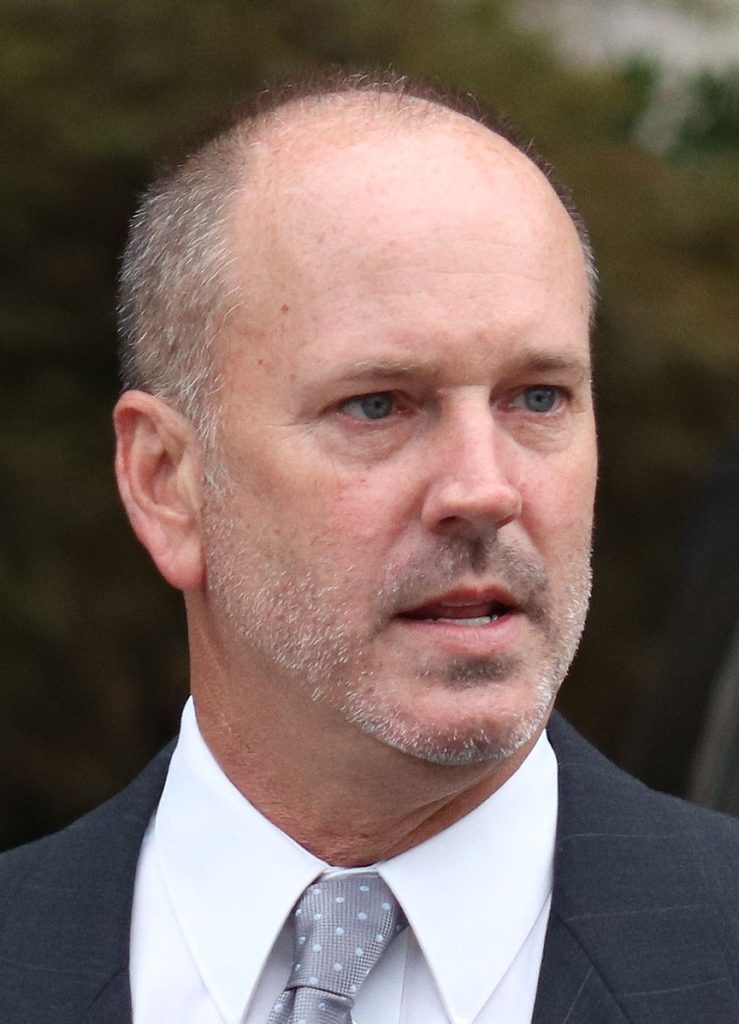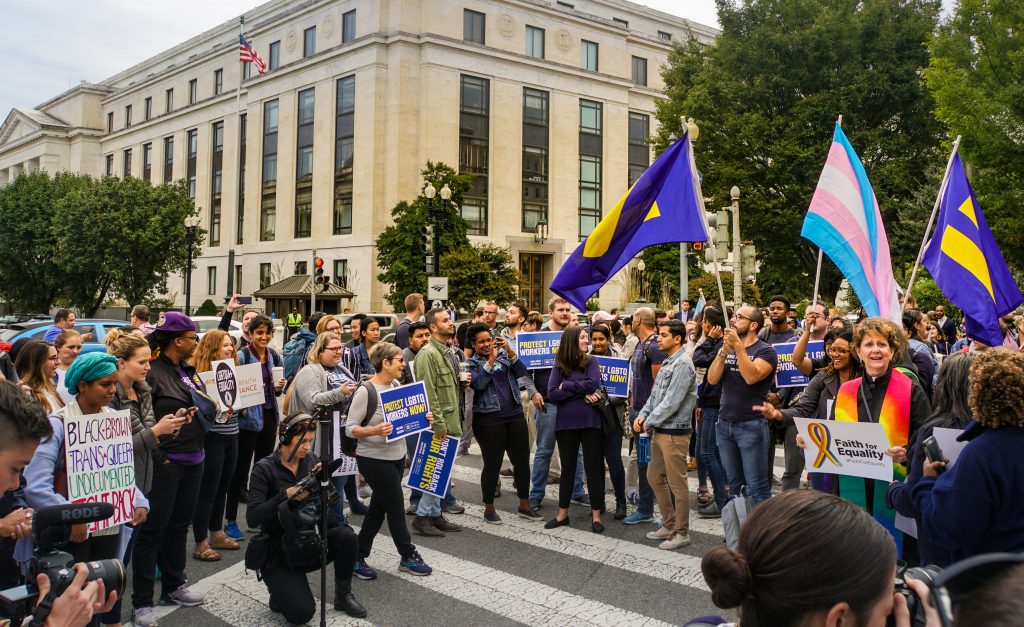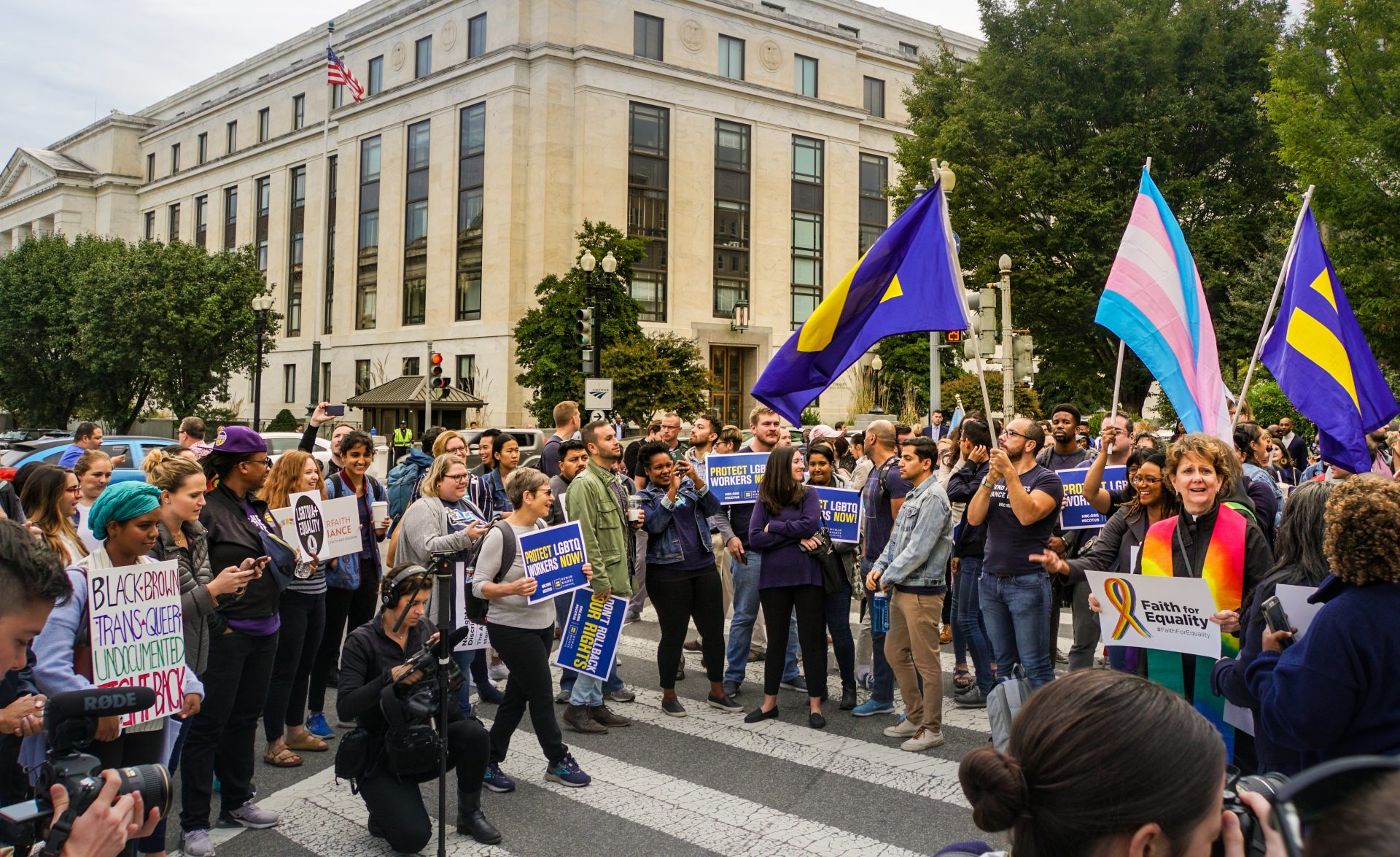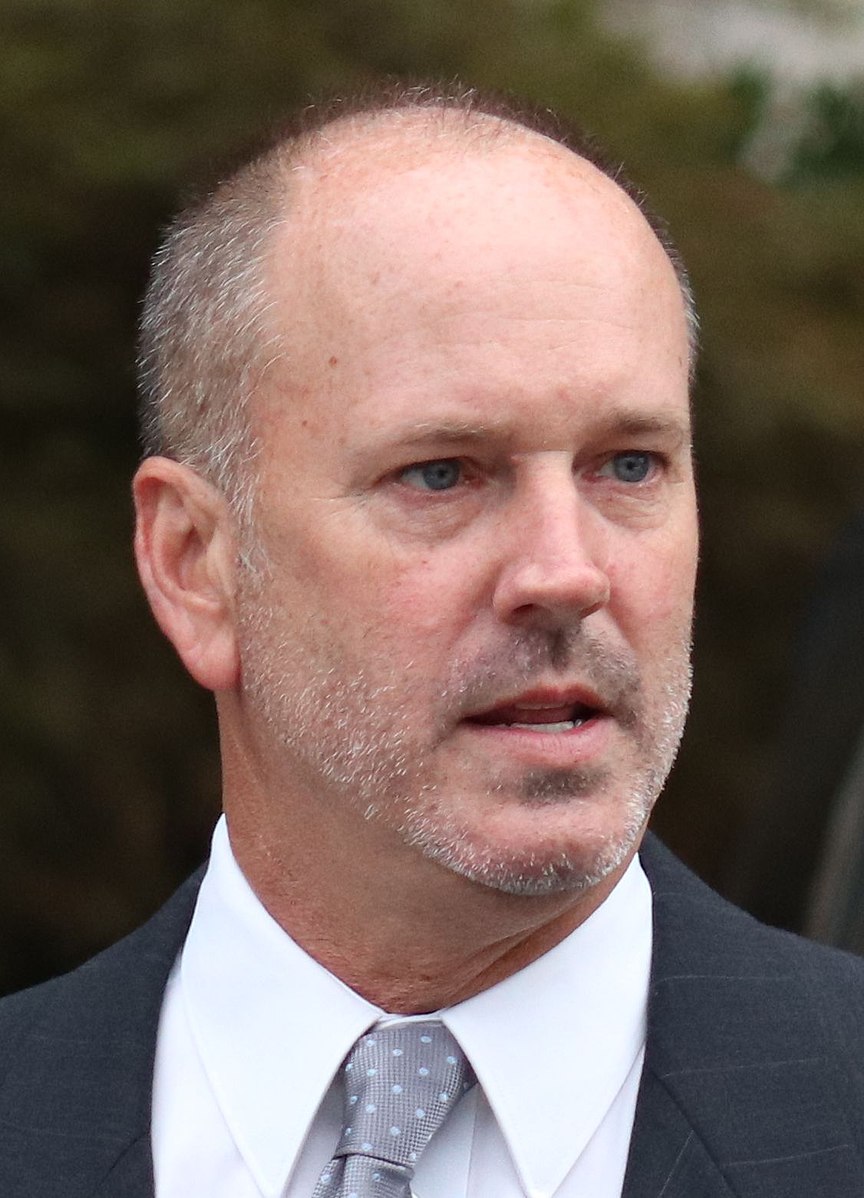In Bostock v. Clayton County (2020), the United States Supreme Court ruled that Title VII of the Civil Rights Act of 1964 protects employees against discrimination and unjust termination based on their sexual orientation or gender identity.
Background
In 2003 Gerald Bostock began working as a child welfare advocate for Clayton County. In early 2013 he began participating in the Hotlanta Softball League, a gay recreational sports group; by June, Clayton County had fired him for “conduct unbecoming a county employee.” Bostock, who had received multiple awards for his work and was recovering from prostate cancer, was distraught. “I lost my livelihood. I lost my medical insurance,” he later recalled. “It was devastating.”

Title VII of the Civil Rights Act of 1964 makes it “unlawful . . . for an employer to fail or refuse to hire or to discharge any individual, or otherwise to discriminate against any individual . . . because of such individual’s race, color, religion, sex, or national origin.” In this context sex referred to the biological distinctions assigned at birth, and it was unclear whether the statute protected individuals from discrimination on the basis of sexual orientation or gender identity. Some states had extended workplace protection laws to expressly include sexual orientation and gender identity, but Georgia did not have such laws in place in 2013.
Legal Case
In 2016 Bostock sought redress for workplace discrimination in the United States District Court for the Northern District of Georgia. The court dismissed the claim as a matter of law. The United States Court of Appeals for the Eleventh Circuit upheld the lower court’s decision, citing Evans v. Georgia Regional Hospital (2017), which determined that Title VII did not include protection against discrimination based on sexual orientation. But similar cases adjudicated in other circuit courts had reached different conclusions, ruling that the Title VII did, in fact, apply. Bostock appealed to the United States Supreme Court, which agreed to hear the case in April 2019 and scheduled oral arguments for the following October.
The Supreme Court consolidated Bostock’s case with two similar cases. In 2010, Altitude Express, a company based on Long Island, New York, fired skydiving instructor Donald Zarda after he told a female customer he was gay. In 2013, Aimee Stephens, who had served as the director of R. G. & G. R. Harris Funeral Homes in Michigan, was likewise fired when she informed her employers she was a transgender woman and intended to begin presenting as such.
In a 6-3 decision the United States Supreme Court determined that Title VII protects LGBTQ+ employees against unjust discrimination and termination. The majority opinion, written by justice Neil Gorsuch, contended, “an employer who fires an individual for being homosexual or transgender fires that person for traits or actions it would not have questioned in members of a different sex. Sex plays a necessary and undisguisable role in the decision, exactly what Title VII forbids.” Expecting challenges, the Court went on to explain: “Those who adopted the Civil Rights Act might not have anticipated their work would lead to this particular result… But the limits of the drafters’ imagination supply no reason to ignore the law’s demands… Only the written word is the law, and all persons are entitled to its benefit.” The use of sex in the Civil Rights Act was thus ruled to be inclusive of both sexual orientation and gender identity, protecting many members of the LGBTQ+ community from discrimination.

A dissenting opinion authored by justice Samuel Alito, and joined by justice Clarence Thomas, criticized the majority opinion by echoing points often made by the late justice Antonin Scalia. The dissenting justices claimed that the majority opinion pretended to sail “under a textualist flag” while instead adhering to a “theory of statutory interpretation” that holds the Court should “‘update’ old statutes so that they better reflect the current values of society.” Justice Brett Kavanaugh authored a second dissenting opinion, firmly maintaining that Title VII does not prohibit discrimination on the basis of sexual orientation.
Outcome
In his majority opinion, Gorsuch cautioned that the Court had issued a narrow decision and one, moreover, that would allow for religious exemptions. Nevertheless, the decision came as a welcome surprise to observers who worried that the recent appointment of conservative jurists would tip the Court’s balance against an expansion of LGBTQ+ rights. Instead, Bostock held the course set by other twenty-first century rulings, from Lawrence v. Texas (2003), which eliminated sodomy laws, overturning Bowers v. Hardwick (1986), to Obergefell v. Hodges (2015), which guaranteed marriage equality.
Reacting to the Court’s decision, Bostock told a Washington Post reporter, “The long, seven-year journey I’ve had, it’s well worth every ache and pain. . . . I didn’t ask for this, but it needed to be done.” Among the three plaintiffs, Bostock was the only one still living. Donald Zarda died in a skydiving accident in 2014 and Aimee Stephens died from kidney failure in 2020.
Following the ruling, the case was remanded back to lower courts for settlement. On November 1, 2022, the Clayton County Board of Commissioners unanimously voted to approve a $825,000 payout to Bostock.
As of 2023, twenty-nine states, including Georgia, do not have explicit statewide laws protecting people from discrimination on the bases of both sexual orientation and gender identity in employment. Even more states lack protection in the areas of education, housing, healthcare, and public services. While the Bostock decision has significantly reduced the effectiveness of existing discriminatory laws, LGBTQ+ individuals remain vulnerable to discrimination.








